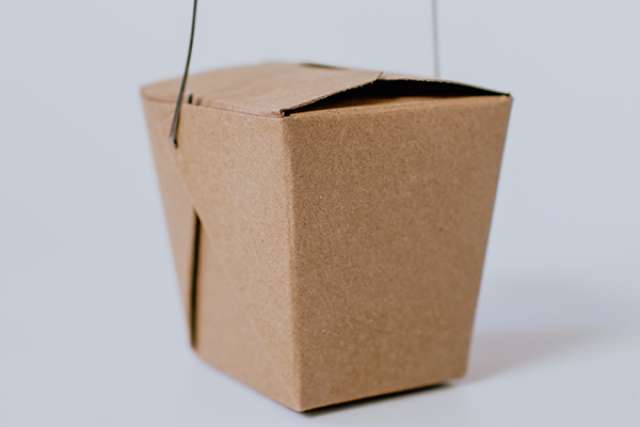In the weeks since the safer-at-home ordinance went into effect in Los Angeles, we've had to learn to do a lot of things differently. The ways in which we study, work, communicate and interact physically with each other have all changed dramatically.
So too with how we eat and shop for food. Yet even with limited trips to the market and most restaurants turning to takeout and delivery service, many of us still have questions about how to best handle the food we bring into our homes.
We turned to Catherine Carpenter, a professor of medicine, nursing and public health at UCLA's Center for Human Nutrition and an expert on food safety and nutrition for tips on takeout, shopping and food hygiene.
Is it safe to order takeout?
The general consensus is that it's safe. There's no evidence that the coronavirus is carried in food or transmitted by food.
Just to be cautious, however, choose restaurants you really trust. Many of us have received notices and seen advertisements from restaurants highlighting their food safety practices. If you have any doubt about a particular restaurant, just don't order from them.
Can I get COVID-19 from takeout boxes or bags?
The virus spreads through respiratory droplets that come from breathing, and the U.S. Department of Agriculture and the Food and Drug Administration have both concluded that there isn't any evidence that the virus is transmitted through food packaging.
So the short answer is no. Since you don't inhale or eat the containers your food comes in, the main issue is your hands coming into contact with the packaging, particularly if it was handled by someone infected with the virus. While the chances of transmission in this way are very low, there are precautions you should take.
Wear disposable latex gloves, if possible, when accepting or picking up your order; if you are doing so in person, wear a mask. Empty the food from the restaurant's plastic or cardboard containers onto your own dishes and then throw away the packaging boxes or bags. If you're wearing gloves, you can remove them, but either way, make sure to use hand sanitizer or wash your hands thoroughly — and don't touch your face before doing so. Use your own utensils.
Now, enjoy your food!
Is it safer to order takeout than to shop for food at the market?
Because there is more exposure to others when we go to the market, it might be safer to get takeout or delivery. But the cost can add up, so when you do make a trip to the market, try to be productive and purchase everything you need in one visit. Wear gloves if you have them. Bring a list and move quickly through the store. Avoiding touching your face, and don't forget to wear a mask.
Most importantly, when you get home from the market, wash your hands! As with takeout packaging, there is no need to wipe or clean every box and can. Just unpack your groceries. And guess what you should do then? Right: Wash your hands again.
What about produce? Should I wash my fruits and vegetables with soap and water?
Residue from soaps and detergents can be absorbed by the produce, and ingesting the residue from them can make you ill. When washing your produce, stick with cold, running water. You can, however, wash your fruits and vegetables that have a peel, such as oranges, bananas and potatoes, with a scrub brush or sponge.
How important are gloves?
Gloves can protect you from encountering viruses that might be present on surfaces. The biggest thing to remember about wearing gloves is not to touch your face, especially if you're wearing them while shopping at the grocery store. Once you get home, be sure to take them off before entering your house. Think of your house as a safe zone. If you're wearing a mask, take it off using the straps, especially if you've already taken your gloves off. You might even want to remove your shoes. When in doubt, wash your hands.
I haven't been to the market in a couple weeks, and some food is past its expiration date. Can I still eat it?
It depends on the food. With dry food like pastas and cereals, you will probably be fine. The worst that could happen is that it might become stale. You should be more concerned about perishable foods, since these come from living tissue. Trust your senses. Look at the food item. Smell it. If it looks bad or smells bad, toss it.
Are there any foods that I should eat during this stressful time?
You want to focus on eating foods that strengthen your immune system. Colorful fruits and vegetables contain antioxidants that help to maintain healthy barriers to disease. Orange fruits and vegetables are rich in vitamin A, a key nutrient the immune system is dependent upon. Dark, leafy vegetables contain iron, which boosts our red blood cells. It is important to have adequate protein in our diet, since many immune functions rely on protein. Moreover, whole grains and legumes contain zinc, a key element important in fighting disease, while nuts are rich in selenium, which helps to maintain a healthy immune response.



